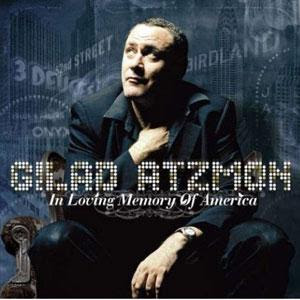 Truth Jihad Radio Wed. 9/28/11, 1-3 pm Central, American Freedom Radio (archived here.) Call-in num
Truth Jihad Radio Wed. 9/28/11, 1-3 pm Central, American Freedom Radio (archived here.) Call-in num ber: (402) 237-2525 or post your questions to my Facebook page.
ber: (402) 237-2525 or post your questions to my Facebook page.
Jewish New Year (Rosh Hashanah) two-hour special!
Guest for both hours: Gilad Atzmon, Israeli-born saxophonist and author whose terrific new book The Wandering Who? has drawn a blitzkrieg of attacks not only from the usual zio-nazi suspects like Jeffrey Goldberg…but also from certain self-styled peaceniks and pro-Palestinians. The common thread is that the attacks on Atzmon are as vitriolic as they are moronic. (Watch John Mearsheimer of the University of Chicago annihilate Goldberg.)
Atzmon’s book is a blistering critique of Jewish identity politics – in his view the real source of Zionism’s ongoing atrocities – and it’s clear that he has touched a very raw nerve.
The Wandering Who? is not just for Jews, and its critique of identity politics has implications extending far beyond the boundaries of Jewishness. Gilad Atzmon is the Moses of our time, calling all of us out of the Egypt of our boneheaded nationalisms and racialisms and exceptionalisms and chosen-people-isms toward some form of humanistic universalism. My own is Islamic: One God, one humanity.
Gilad’s work is, among other things, a reminder to let religion be religion, and to prevent it from devolving into secular identity politics – one of the worst possible forms of idolatry. For God is the ultimate Other, and an orientation of absolute surrender to God (the correct orientation, the prophets tell us) amounts to an attitude of complete openness to the Other. Secular identity politics offers the opposite: A badly-disguised worship of self. The idolatrous self-worship of “The Jewish People,” invented 200 years ago as a poor substitute for Judaism, created the blindness towards the Other that sparked the ongoing holocaust in Palestine. Gilad Atzmon mercilessly dissects this process, and opens the door to the kind of openness toward the Other, and the universal ethics of love, kindness and compassion that grow out of such openness, that could solve the problem in Occupied Palestine – and a whole lot of other places as well.